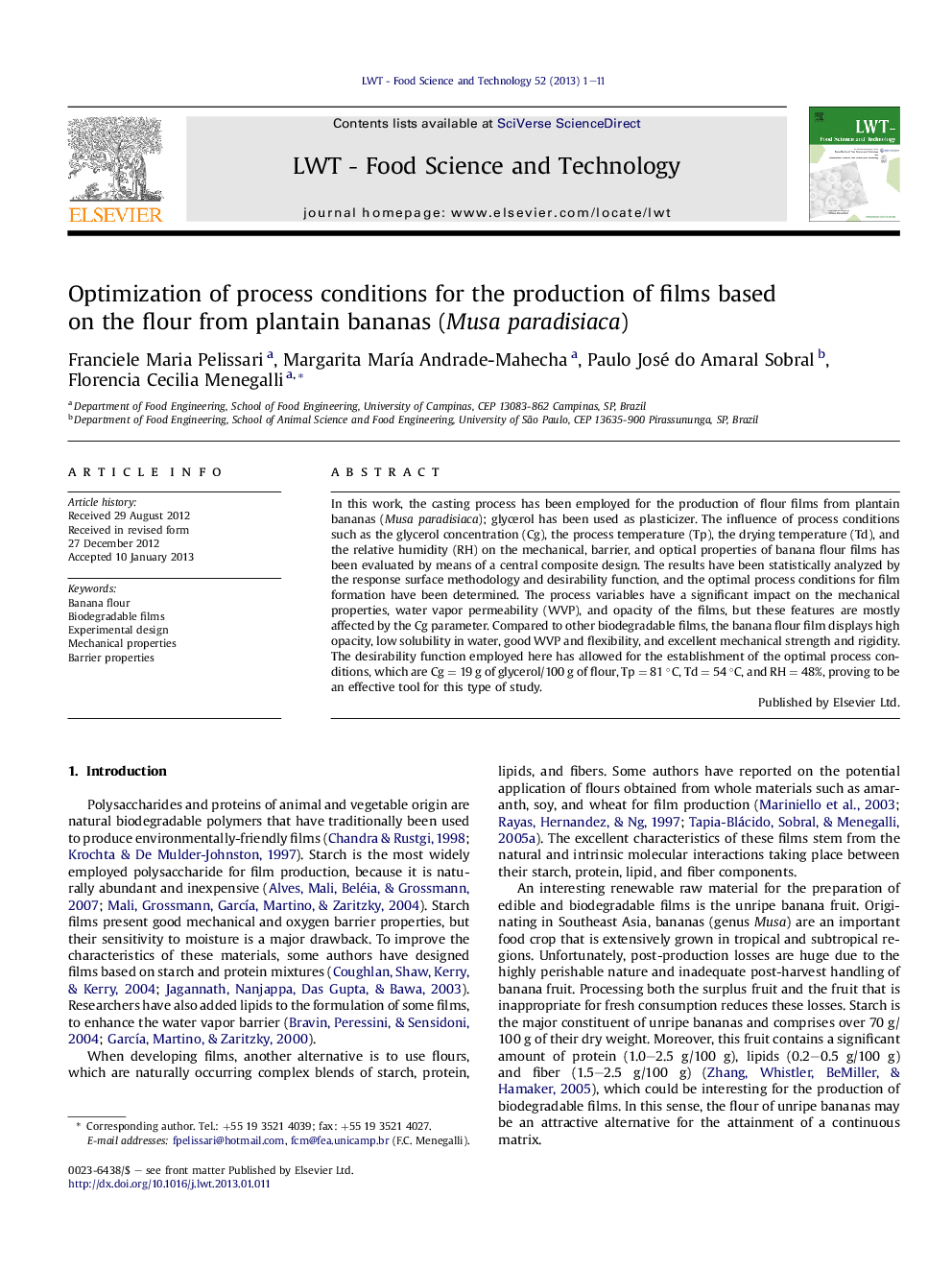| Article ID | Journal | Published Year | Pages | File Type |
|---|---|---|---|---|
| 4563924 | LWT - Food Science and Technology | 2013 | 11 Pages |
In this work, the casting process has been employed for the production of flour films from plantain bananas (Musa paradisiaca); glycerol has been used as plasticizer. The influence of process conditions such as the glycerol concentration (Cg), the process temperature (Tp), the drying temperature (Td), and the relative humidity (RH) on the mechanical, barrier, and optical properties of banana flour films has been evaluated by means of a central composite design. The results have been statistically analyzed by the response surface methodology and desirability function, and the optimal process conditions for film formation have been determined. The process variables have a significant impact on the mechanical properties, water vapor permeability (WVP), and opacity of the films, but these features are mostly affected by the Cg parameter. Compared to other biodegradable films, the banana flour film displays high opacity, low solubility in water, good WVP and flexibility, and excellent mechanical strength and rigidity. The desirability function employed here has allowed for the establishment of the optimal process conditions, which are Cg = 19 g of glycerol/100 g of flour, Tp = 81 °C, Td = 54 °C, and RH = 48%, proving to be an effective tool for this type of study.
► The effect of process conditions on the properties of banana flour films was studied. ► The optimization methodology employed in this work was satisfactory. ► The glycerol content was the most relevant parameter influencing the film properties. ► The banana flour seems to be a very promising material for the formulation of films.
